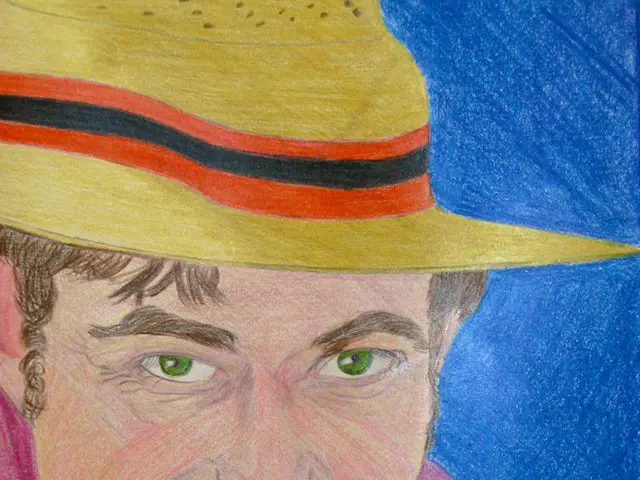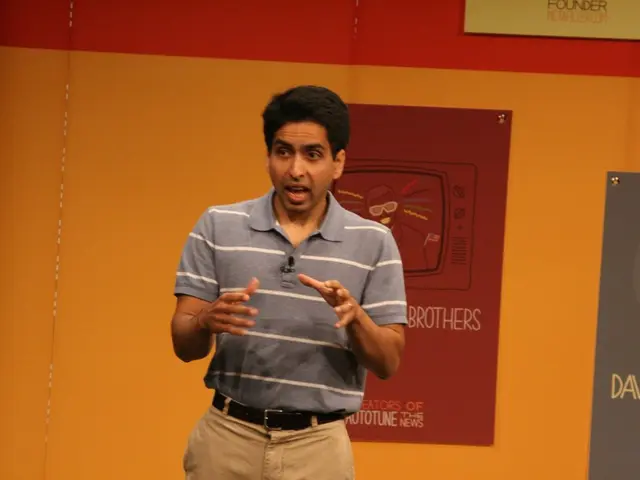Top Writing Books to Greatly Inspire in 2025
This blog post contains affiliate links to help support the author. These links do not affect the cost for readers but allow the author to receive a small commission if a purchase is made. For more information on affiliate links, visit here.
While I have been writing stories since I learned to write, I did not start reading books about writing or intentionally learning the craft until a few years ago. I can honestly say that it dramatically transformed my life, not just as a writer, but as a person who values constant learning and self-improvement.
This list of the best books about writing may not have the same life-changing effect on everyone, but reading each book will undeniably make you a better writer.
Although I am naturally good at writing, there is a significant difference between being good with words and writing good stories. To write something truly great, you need to learn how to work with what you've written and make it even better.
There is no single book that can teach you everything about writing, as there is simply too much to cover. Even the largest book would need to be written by multiple authors because no one can be an expert in all aspects of writing. Therefore, it is essential to learn from various sources and not to rely solely on one book as the ultimate guide to writing novels.
Below is a list of some of the most helpful books I've found for learning about my favorite craft. Reading these books is beneficial whether you are writing your first book or your fourth, as they are so valuable and useful.
What Makes a Good Book
Donald Maass's "Writing the Breakout Novel" and the accompanying workbook are filled with practical tips on how to make your book appealing to readers. Maass examines several "breakout novels" and explains exactly what makes them compelling, even if they are not books the reader would have originally considered.
Maass also wrote "Writing 21st Century Fiction": High Impact Techniques for Exceptional Storytelling. While classics are certainly worth reading and learning from, modern readers are seeking something different, and this book shows you what they are looking for. It also provides many practical tips that you can apply to your work in progress, and it taught me a lot about how to naturally weave real emotions into my writing.
Books about Story Structure and Scene Structure
Many aspiring writers resist story structure, but it is impossible to escape it. If you still believe that following a structure makes your book formulaic, you likely do not understand structure well enough, and learning more about it can only benefit your writing.
So, what exactly is story structure? In author K.M. Weiland's words, "If there's just one thing that matters to your success as a writer, it's story structure. Story structure is what allows authors to create stories that work every single time. Story structure is what allows you to quickly diagnose and remedy plot problems."
Naturally, Weiland herself has a book about structuring your story, as well as a workbook to help you go through the process. You can easily find both in the Structuring Your Story Boxset. If the concept of structure seems confusing and daunting, her books are an excellent place to start because they are easy to understand.
John Trudy's "Anatomy of Story" is a more complex read and contains many examples from classic films, which may be tedious if you have not seen any of them. However, his approach to structure is decidedly non-formulaic, and I would recommend this book, especially to people who do not like to outline their books. You will learn how to plot your story's most important elements without taking away the discovery and wonder from the writing process.
Jessica Brody's "Save the Cat! Writes a Novel" is a popular book in the writing community, and for good reason. The book shows you what plot points you need to have to write a captivating story and tells you how to make them work for different genres. I have never been great at coming up with the plot for my stories, usually starting from a character or a vague "vibe," so this book was a game-changer for me, eliminating "writer's block" from my vocabulary.
"Scene & Structure" by Jack M. Bickham is a book I have yet to finish but provides great insight into how scenes work in your novels. Some of Bickham's advice contradicts what I know about writing and what I have learned from other writers, so take some of it with a grain of salt if it doesn't resonate with your understanding of scene structure.
The Best Storytelling Books for Beginner Writers and More Experienced Authors Alike
Creating a compelling story is a skill almost separate from good writing, although both are essential and can be learned separately. If you want to write great stories, it is worth reading books about storytelling, even if you are a more experienced author.
Matt Bird's "The Secrets of Story" tells you exactly how to tell stories that captivate readers, covering practically every aspect of your book, including tone and dialogue.
"Wired for Story" takes a scientific approach to what makes a great story by examining what humans are wired to respond to. The book also explains why stories are so important to us and how they have helped us survive, which is essential knowledge for writing stories that resonate with readers. Understanding what readers respond to can help you plot events in a logical manner, which is crucial for overcoming writer's block.
"Writing Fiction: A Guide to Narrative Craft" has a fancy title, but I found it highly accessible. The book covers various aspects of writing fiction and offered me many new insights.
Writing the Intimate Character by Jordan Rosenfeld has been essential for me in understanding the differences between points of view used in fiction. The book teaches you many things about writing fiction that may not be intuitive, even if you read fiction frequently, so I would recommend this book to every author.
The Best Books About Writing Great Dialogue
While Stein on Writing was already valuable for improving dialogue, "How to Write Dazzling Dialogue" by James Scott Bell was also helpful during the drafting of one of my novels.
But what do characters do when they talk? While editing my novel, I noticed I was overusing certain gestures, such as characters looking at one another. "She Sat He Stood" by Ginger Hanson provides many ideas for how to make characters interact with their environment while they talk, adding dynamism to your writing.
Plotting and Outlining Your Novel
Contrary to popular belief, writing a book outline does not take away the joy of discovering your story; instead, it allows you to discover it as you plot and then again when you reach the actual writing and all the beautiful details come to life.
There is no one method to outline your novel or the only way to see story structure, as our brains are different and we see the world differently. It's worth reading various books and exploring different methods. Just because one craft book doesn't appeal to you, doesn't mean you shouldn't read another. Writing fiction is not like coding, as there is no "right answer" to anything.
I would like to mention K.M. Weiland again, and not just because most of the books about craft on my Kindle are by her or Donald Maass, but because her books are simply easy to understand and full of fantastic and free resources on her website. "Outlining Your Novel" (and the workbook) has been a valuable resource for me when planning new stories.
I recently read "Plot Gardening" by Chris Fox because I wanted to see if there was something I could add to my own outlining process. If the idea of writing a novel outline doesn't appeal to you, this book offers a gentle process to help you plot and teaches you about Hero's Journey and Story Circle in the chapters about story structure.
Remember what I said about needing to explore different methods? I was recommended "Book Architecture" by Stuart Horwitz. Although I wasn't looking to update my methods of outlining, I knew that there wouldn't be any harm in adding new tools to my writerly toolbox, especially since I'd be teaching a new class on writing a novel in autumn 2022.
If you haven't been fond of other books about planning your novel and you don't feel like understanding story structure works for you, give this book a try. Not everything in the book will be useful for me personally, but I did learn one new storytelling tool that I will be using from now on.
Many writers like "How to Write a Novel Using the Snowflake Method" by Randy Ingermanson, so I feel comfortable recommending the book here, although I am yet to read it myself. Who knows, maybe it will be the thing that works for you.
Books about Writing Good Sentences
Recently, I have been focusing on the nitty-gritty details of writing, and here are two great books I've found to help with that.
"It Was the best of Sentencs, It Was the Worst of Sentences" by June Casagrande has been incredibly helpful in cleaning up my sentences and focusing on what I truly want to say with them. It has been essential in editing my story at the sentence level and has been integral in polishing this blog as well.
"Building Great Sentences" by Brooks Landon is a slightly more technical book, and I have yet to work through it entirely, but it helps you write more beautifully by teaching you how to build the right rhythm into your sentences. While many writing guides focus on brevity, this book shows you how building longer sentences can take your readers on an unforgettable journey through your story.
Reference Books for Writers
Tired of writing about how "sad" someone is and how that makes them "cry"? There are books to help you with that, too! "The Emotion Thesaurus" by Angela Ackerman and Becca Puglisi is a fantastic resource for all those times you can't quite put your finger on how to describe what your characters are feeling or when you've somehow managed to run out of words.
There are other great books in the thesaurus series, like "The Rural Setting Thesaurus," but I realized later that it was a bit too America-centered for what I was writing, and culture is always something to keep in mind when using any reference book about the environment or human behavior.
"1000 Character Reactions" by Valerie Howard has been another life-saver for me. Are you someone whose characters are always raising their brows or sighing? Don't worry, I won't tell anyone! When you're writing your first draft, it's natural to use the expressions that first come to mind, and then later you can refine your writing with more descriptive language and more accurate choices of words. Books like this are a fantastic resource for that, and there's no shame in using them.
I recently purchased "Character Expressions: A Fiction Writer’s Thesaurus of Facial Expressions" by Dahlia Evans, and although I haven't gotten to it yet, I'm going to recommend it just in case.
Books About Writing Life
Not for writing about life, but about being a writer. Stephen King's "On Writing" is a popular book that many writers still consider a good resource. Anne Lamott's "Bird by Bird" is a book I am still personally yet to read, but it seems very popular in the writing community of Instagram, so I feel very safe recommending it to any writer. "The Artist's Way" by Julia Cameron is another classic that I have been personally recommended, and if you're familiar with the concept of "morning pages," this book is actually where it comes from. And hey, wouldn't you know, there's also a workbook.
I hope you found something new and helpful in this list. I tried to stick to books that I have read or plan to read very soon, so undoubtedly, there are many excellent books that I left out that may be even better than these. However, I will be updating this list whenever I read something worth mentioning, so bookmark this post and come back to it later! Did I leave out your favorite? Let me know in the comments below!
Our website is a blog about writing fiction, written by a published author and creative writing teacher. You can find more writing tips and inspiration in the blog, and you can get the best author tools at Writer Lifestyle on Etsy.
- The workbook accompanying Donald Maass's "Writing the Breakout Novel" is a valuable resource for learning practical tips on making a book appealing to readers.
- "Writing 21st Century Fiction": High Impact Techniques for Exceptional Storytelling by Donald Maass provides insight into what modern readers are seeking and offers practical tips that can be applied to work in progress.
- K.M. Weiland's books, such as "Structuring Your Story" and its accompanying workbook, are easy to understand and provide essential knowledge about story structure.
- Various books about storytelling, such as Matt Bird's "The Secrets of Story" and "Wired for Story" by Lisa Cron, can be beneficial for both beginner writers and more experienced authors, offering tips on plotting events, tone, dialogue, and understanding what humans are wired to respond to in stories.








